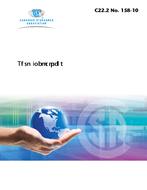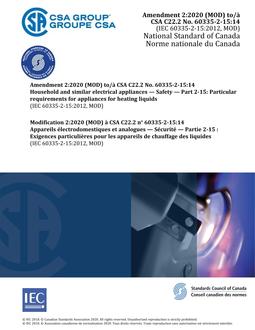Preface
This is the third edition of ANSI Z21.73/CSA 11.1, Portable type gas camp lights. It supersedes the previous editions published in 2000 and 2011.
Scope
1.1 This Standard applies to portable type gas camp lights for use: a) with propane, butane, liquefied petroleum gas or any combination thereof; and b) outdoors only. 1.2 Lights and components employing materials or having forms of construction differing from those detailed in these provisions may be examined and tested according to the intent of the provisions and if found to be satisfactorily equivalent, may be given recognition. 1.3 This Standard applies to lights constructed entirely of new, unused parts. 1.4 All references to psi throughout this Standard are to be considered gauge pressures unless otherwise specified. 1.5 If a value for measurement, as given in this Standard, is followed by an equivalent value in other units, the first stated value is to be regarded as the specification, except as noted in Clause 4.10, Instructions, and Clause 4.11.4. 1.6 Annex A, Items Unique to Canada, contains provisions that are unique to Canada. 1.7 Clause 2, Reference publications, contains a list of standards specifically referenced in this Standard, and sources from which these standards may be obtained. 1.8 This Standard contains SI (Metric) equivalents to the yard/pound quantities, the purpose being to allow the Standard to be used in SI (Metric) units. (IEEE/ASTM SI 10, American National Standard for Metric Practice, or ISO 80000-1:2009, Quantities and units – Part 1: General is used as a guide in making metric conversion from yard/pound quantities.) If a value for a measurement and a corresponding value in other units are stated, the first stated value is to be regarded as the requirement. The given corresponding value may be approximate. If a value for a measurement and a corresponding value in other units are both specified as a quoted marking requirement, the first stated unit, or both are to be provided. 1.9 In this Standard, “shall” is used to express a requirement, i.e., a provision that the user shall satisfy in order to comply with the standard; “should” is used to express a recommendation or that which is advised but not required; and “may” is used to express an option or that which is permissible within the limits of the standard. Notes accompanying clauses do not include requirements or alternative requirements; the purpose of a note accompanying a clause is to separate from the text explanatory or informative material. Notes to tables and figures are considered part of the table or figure and may be written as requirements. Annexes are designated normative (mandatory) or informative (non-mandatory) to define their application.
Product Details
- Edition:
- 3rd
- Published:
- 07/01/2017
- ISBN(s):
- 9781771399593
- Number of Pages:
- 47
- File Size:
- 1 file , 1.6 MB


